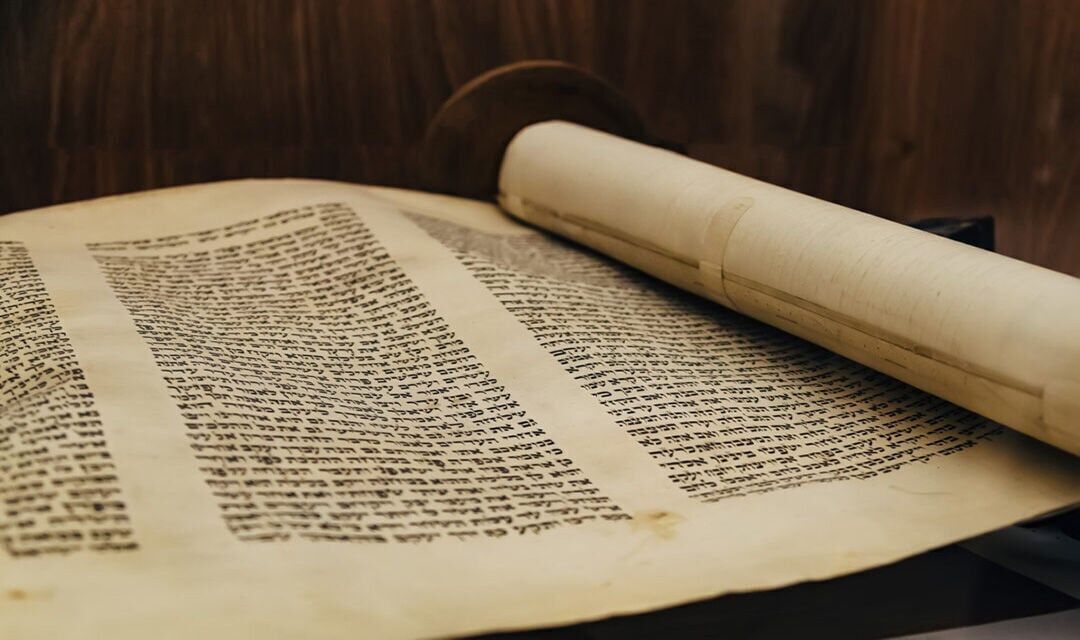Torah Portion: I Thank, Therefore I Am

By Rabbi Tzvi Muller
Parshat Mikketz: Genesis 41:1-44:17; Numbers 7:24-29; Zachariah 2:14-4:7.
A Drug Enforcement Administration officer stopped at a ranch in Texas and told the old rancher, “I need to inspect your ranch for illegally grown drugs.” The rancher said, “OK, but don’t go into that field over there.”
The officer verbally exploded and said, “See this badge? It means I am entitled to go wherever I wish.” The rancher nodded, apologized and went about his chores.
A short time later, the old rancher heard loud screams, looked up and saw the DEA officer in the field being chased by a big bull. The officer was clearly terrified. The rancher threw down his tools, ran to the fence and yelled at the top of his lungs, “Your badge, officer, show him your badge. Tell him it entitles you to be there.”
If left unchecked, our egos produce their own “badge of entitlement.” The human ego creates a self-important identity that leaves us feeling entitled. We can be blessed with many gifts in life and remain ungrateful because we feel that we deserve them, that we have it all coming to us. As Jews, we are reminded to check our egos and be thankful for everything we have.
Why are Jews called Jews? What does the word Jew mean? What is its origin?
The ancient Jewish kingdom was called the Kingdom of Judah. The tribe of Judah was the predominant population and represented the political and often spiritual leadership of the Jewish people. The origin of the term Jew is a derivative of Judah. It is derived from the Hebrew word for thanks (Genesis 29:35). Judah connotes the expression of gratitude.
Is the fact that Jews are called Jews merely the evolution of historical labeling, or is it a reflection of a deeper identity? As a lifelong student of Jewish values, I have no doubt that gratitude is at the core of what Judaism is all about.
The very first word uttered by a practicing Jew each morning is modeh, thanks. Immediately upon wakening, one thanks God for renewed life and says, “Thanks I offer before You, living and eternal King, for You have mercifully restored my soul within me. Your faithfulness is great.”
The rest of the day is permeated with further expressions of gratitude for eyesight, clothes, intelligence, Torah, godliness, livelihood, daily miracles, etc.
In fact, Judaism instructs its adherents to recite at least 100 blessings, expressions of thanks, every day.
Why?
When we appreciate being beneficiaries of so many gifts in life, we are more generously inclined to share some of these gifts with others. Gratitude prompts us to connect with our fellow human beings with love and kindness.
Of all the Jewish holidays, Chanukah stands out as a holiday specifically designated lehodot ulechallel, to offer thanks and praise to the Almighty.
This Chanukah, let us shed any sense of entitlement, be grateful for what we have and be even kinder. That is what it means to be a Jew. A Jew’s badge says, I am unentitled. It says, Thank you. Let us embrace our Jewish identity of feeling grateful.
Descartes famously formulated cogito ergo sum (I think, therefore I am). The Jewish formula is, I thank, therefore I am.
Have a happy and thankful Chanukah.
This article originally appeared in the JN on Dec 10, 2015. Rabbi Tzvi Muller is rabbi of the Birmingham Bloomfield Shul.


